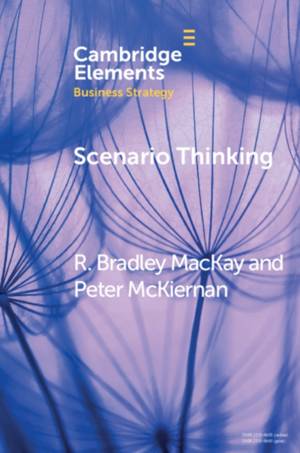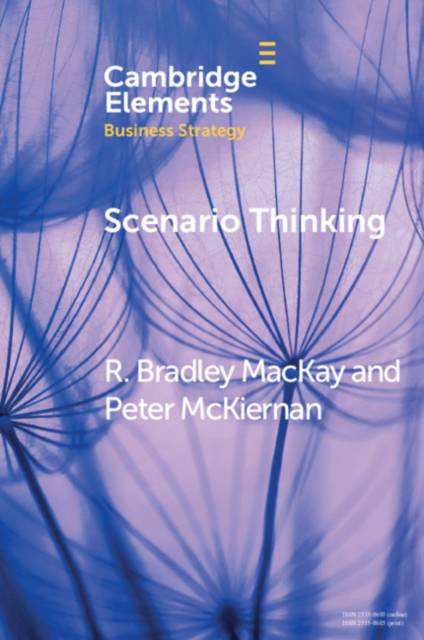
- Afhalen na 1 uur in een winkel met voorraad
- Gratis thuislevering in België vanaf € 30
- Ruim aanbod met 7 miljoen producten
- Afhalen na 1 uur in een winkel met voorraad
- Gratis thuislevering in België vanaf € 30
- Ruim aanbod met 7 miljoen producten
Zoeken
€ 31,95
+ 63 punten
Omschrijving
This Element infuses established scenario planning routines with an exploration of cognitive reasoning, by contextualising scenario thinking within the wider human endeavour of grappling with future uncertainties. A study of ancient civilisations shows that scenario thinking is not new, but has evolved significantly since ancient times. By de-coupling scenario thinking from scenario planning, it is elevated as the essential ingredient in managerial foresight projects. The historical theme continues, focussing on the evolution of modern scenario planning, by way of the French and Anglo-American schools of thought, using the intuitive logics methodology. Archival research has discovered early contributions in the UK around the development and use of scenario thinking in public policy, which has been overlooked in many received histories. Finally, the usefulness of scenario thinking for strategic management is challenged here and the argument that it is a heuristic device for overcoming cognitive biases and making better strategic decisions is refined.
Specificaties
Betrokkenen
- Auteur(s):
- Uitgeverij:
Inhoud
- Aantal bladzijden:
- 75
- Taal:
- Engels
- Reeks:
Eigenschappen
- Productcode (EAN):
- 9781108469005
- Verschijningsdatum:
- 4/10/2018
- Uitvoering:
- Paperback
- Formaat:
- Trade paperback (VS)
- Afmetingen:
- 152 mm x 229 mm
- Gewicht:
- 136 g

Alleen bij Standaard Boekhandel
+ 63 punten op je klantenkaart van Standaard Boekhandel
Beoordelingen
We publiceren alleen reviews die voldoen aan de voorwaarden voor reviews. Bekijk onze voorwaarden voor reviews.











